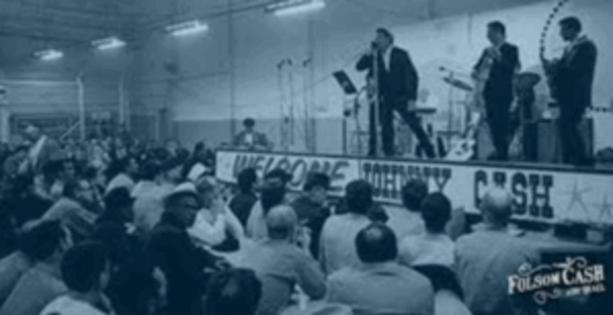Johnny Cash, Cannabis And The Trip To Folsom
Published in Cannabis Daily
The Man in Black enjoyed some green and lifted up the downtrodden
He was the iconic “Man in Black,” often remembered for his deep voice, rebellious spirit, and connection to the downtrodden. His complex persona blended gospel roots with outlaw bravado, and like many artists of his era, he battled addiction. While he is more famously associated with amphetamines and barbiturates, there are confirmed accounts that he also used marijuana. Here is the facts about Johnny Cash, cannabis and the trip to Folsom. Cash admitted to using marijuana, but during the 1960s, Cash struggled with hard substance abuse, frequently arrested for drug-related offenses. In 1965, he was famously arrested by the U.S. Border Patrol in El Paso, Texas, for smuggling amphetamines and sedatives hidden in his guitar case. He experimented with various substances in an effort to escape the pressures of fame and personal demons. And he knew about mistakes and how you should be able to rise above them.
It was during this period that he sought solace in faith, nature, and, eventually, recovery—with the help of June Carter. His drug use had a major impact on his career and personal life, leading to both profound lows and a redemptive arc that fans would celebrate for decades. He performed live at Folsom State Prison in California. His connection to Folsom began much earlier. In 1953, while serving in the U.S. Air Force in Germany, Cash saw the documentary Inside the Walls of Folsom Prison. The film left a deep impression on him and inspired the 1955 song “Folsom Prison Blues,” featuring the haunting lyric: “I shot a man in Reno, just to watch him die.” The track became one of his signature songs and built his reputation as a voice for the downtrodden. On January 13, 1968, Cash performed at Folsom State Prison in California, backed by June Carter and the Tennessee Three. The resulting album, At Folsom Prison, revitalized his career and cemented his status as a voice for the voiceless. The performance was raw, electric, and filled with empathy—traits that defined Cash at his most authentic. The show solidified his outlaw image. His performance struck a chord with inmates and the general public alike, humanizing prisoners and lending voice to their struggles. Though cannabis may have played a minor role in Cash’s personal saga, it’s clear that his deeper legacy lies in his ability to turn pain into poetry and performance. The Folsom concert, in particular, reflected his hard-earned authenticity and compassion—qualities shaped not just by addiction, but by a profound desire for redemption and truth.
The Fresh Toast is a daily lifestyle platform with a side of cannabis. For more information, visit www.thefreshtoast.com.
























Comments